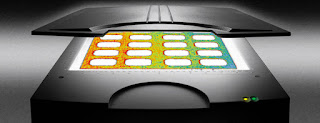Phosphor
screen scanners are medical devices used for the detection and diagnosis of
various types of cancers. They allow quick and accurate imaging of tissues and
cells through specialized phosphor screens. Some key advantages of these
scanners include high resolution imaging capability, minimal radiation exposure
to patients, ease of use, and ability to detect even the smallest abnormalities
at an early stage. The growing awareness about early cancer detection and
rising incidence of diseases like breast cancer, lung cancer and prostate
cancer have significantly boosted the demand for phosphor screen scanners in
recent years. The global Phosphor Screen Scanner Market is estimated to be
valued at US$ 288 Bn in 2023 and is expected to exhibit a CAGR of 10% over the forecast period 2024 to 2031, as highlighted
in a new report published by Coherent Market Insights.
Market key trends:
The increasing demand for early cancer detection is one of the major
factors driving the growth of the phosphor screen scanner market. Early
detection of cancers highly increases the chances of complete cure and recovery.
Phosphor screen scanners allow detection of tumors as small as few millimeters,
which was difficult to detect with conventional radiography methods. This has
led to higher adoption of these scanners by healthcare facilities and
diagnostic centers. Development of advanced digital phosphor screen scanners
with capabilities like faster scan times, high resolution and sensitivity is
further supporting the market growth. Manufacturers are continuously innovating
their products to provide better solutions for early stage cancer detection
applications.
Segment Analysis
The
global
phosphor screen scanner market size is dominated by the medical imaging
segment. This segment accounts for over 60% of the total market share due to
the widespread usage of phosphor screen scanners in medical imaging
applications like X-ray imaging, dental radiography, and fluoroscopy. Phosphor
screens are used in medical imaging equipment as an X-ray detector, and
scanners are used to digitize the phosphor screen for medical diagnosis.
Key Takeaways
The global phosphor screen scanner market is expected to witness high
growth over the forecast period from 2024 to 2031.
Regional analysis: North America is currently the dominant region in the global
phosphor screen scanner market. This is attributed to the large base of medical
imaging equipment and favorable medical reimbursement policies in countries
like the US and Canada. Moreover, the presence of leading market players like
Intomics and Thermo Fisher Scientific in the region further augment the market
growth. Europe is the second largest regional market and is expected to have
highest growth over the coming years owing to improving healthcare
infrastructure and rising investment in medical research in nations like
Germany, UK, and France.
Key
players operating in the phosphor screen scanner market are Intomics,
GENinCode, NanoString, Tepnel Pharma Services Limited, Pfizer Inc., Novartis
AG, Teva Pharmaceutical Industries Ltd., Merck & Co., Inc, QIAGEN, Quest
Diagnostics Incorporated, Medtronic, Thermo Fisher Scientific Inc., Laboratory
Corporation of America Holdings, bioMérieux SA, F. Hoffmann-La Roche Ltd, Eli
Lilly & Company, GlaxoSmithKline plc, Cepheid, AstraZeneca PLC, Myriad
Genetics, Inc., Bristol-Myers Squibb Company, and Foundational Therapeutics.
Intomics is a market leader in the North American and European region for
phosphor screen scanners owing to its wide product portfolio and widespread
geographical presence.



Comments
Post a Comment